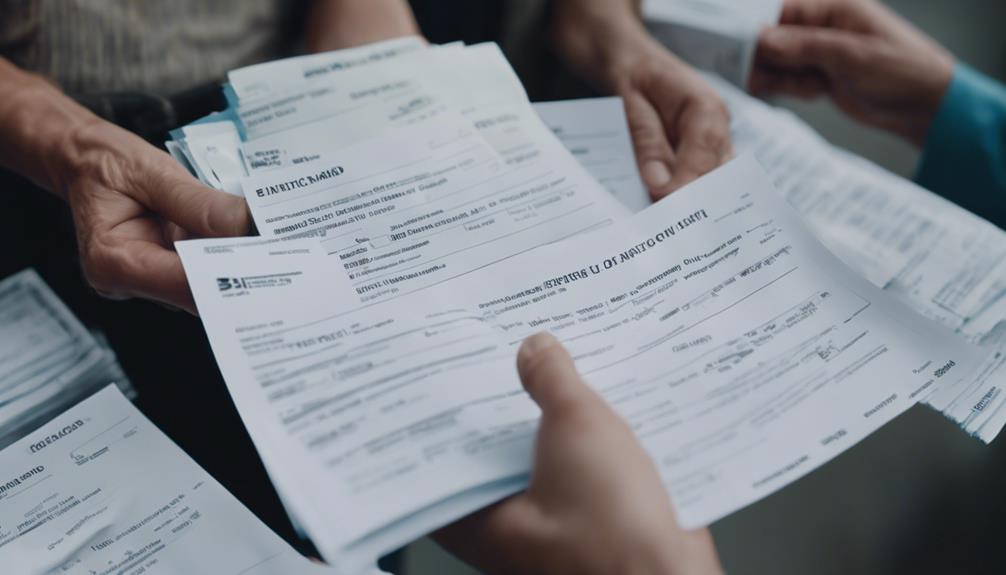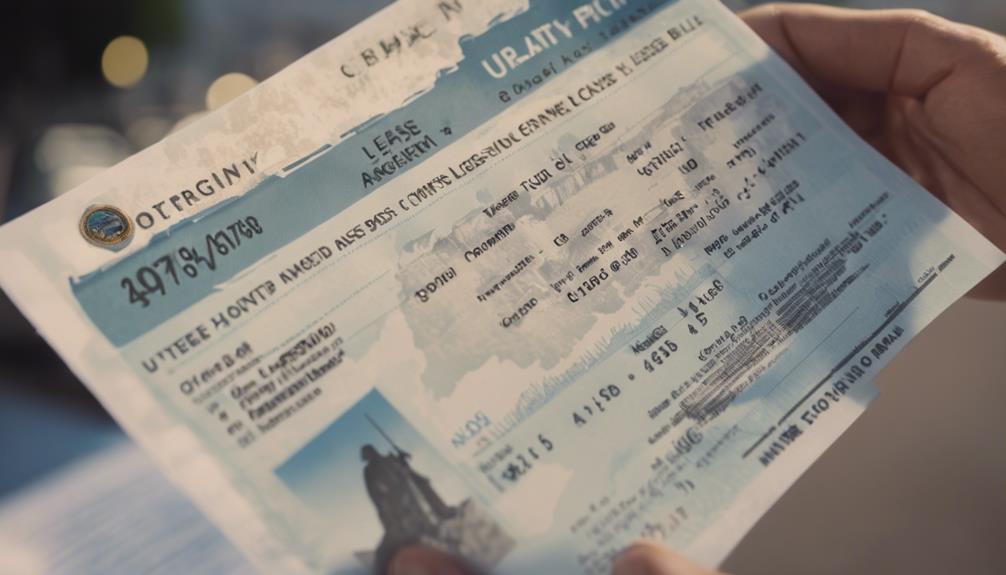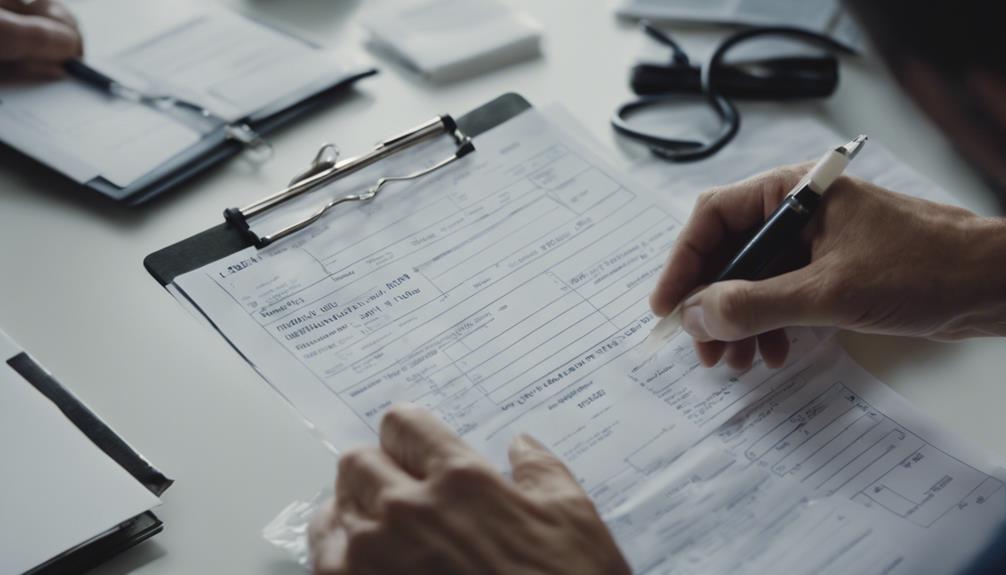To apply for Utah Emergency Medicaid, have proof of income like pay stubs or tax returns, residency verification with documents such as utility bills or a driver's license, identification like a government-issued ID, and medical necessity proof such as records from a healthcare provider. Make sure your income, residency, identity, and medical necessity details are accurate and up-to-date to meet eligibility. These documents are vital in ensuring your application process goes smoothly. Each document plays a crucial role in determining your eligibility for the emergency Medicaid program.
Eligibility Criteria

To qualify for Utah Emergency Medicaid, you must meet specific eligibility criteria established by the state. Emergency Medicaid is designed to provide healthcare coverage for individuals in urgent medical situations, regardless of their immigration status. When applying for Emergency Medicaid in Utah, you'll need to meet certain eligibility requirements, particularly related to your financial status.
The application process for Utah Emergency Medicaid involves proving that you're a resident of Utah, providing documentation of your medical emergency, and demonstrating that you aren't eligible for regular Medicaid due to your immigration status. Additionally, you'll need to meet income guidelines set by the state to qualify for this emergency healthcare coverage.
Utah Emergency Medicaid is a crucial resource for individuals facing urgent medical needs who don't qualify for regular Medicaid. By meeting the state's eligibility requirements, particularly those related to your financial status, you can access the healthcare services you need during a time of crisis.
Proof of Income
Demonstrating your income through official documentation is a key requirement when applying for Utah Emergency Medicaid. Income verification is crucial in determining your eligibility for the program. To verify your income, you'll need to provide documents such as pay stubs, tax returns, or a letter from your employer detailing your wages.
When submitting your application for Utah Emergency Medicaid, ensure that the income documentation you provide is current and accurately reflects your financial situation. Incomplete or inaccurate income verification can delay the processing of your application or even lead to denial of benefits.
It is important to be transparent and truthful about your income during the application process. Falsifying income information can result in serious consequences, including being ineligible for Utah Emergency Medicaid in the future. By providing accurate income verification, you can increase your chances of receiving the necessary assistance during times of medical emergency.
Residency Verification

Verifying your residency is a critical step in the application process for Utah Emergency Medicaid. To prove your address, you can provide documents such as utility bills, rental agreements, or a driver's license. These documents should clearly display your name, address, and be recent to ensure accuracy.
Utah Emergency Medicaid requires applicants to have a specific residency duration in the state. Typically, you must have lived in Utah for at least 30 days prior to applying for emergency Medicaid benefits. It's essential to demonstrate that you meet this residency requirement to qualify for assistance.
When submitting your proof of address for residency verification, ensure that the documents are up to date and match the information provided in your application. Any discrepancies or outdated information may delay the processing of your Utah Emergency Medicaid application.
Identification Documents
When applying for Utah Emergency Medicaid, you'll need to provide specific identification documents to verify your identity. Document verification is a crucial step in the application process to ensure that the right individual is receiving the benefits.
To meet the identification requirements, you'll typically need to present a valid government-issued photo ID, such as a driver's license, passport, or state ID card. These documents serve as proof of your identity and help prevent fraud within the Medicaid system.
In addition to a photo ID, you may also be asked to provide other forms of identification, such as a social security card, birth certificate, or utility bill with your name and address. These documents further support your identity and residency status, aiding in the verification process for Utah Emergency Medicaid.
Medical Necessity Proof

To qualify for Utah Emergency Medicaid, you must provide proof of the medical necessity for the services or treatment you're seeking. This proof is typically established through medical records and physician certification. Medical records play a crucial role in demonstrating the medical condition that requires immediate attention and the specific services or treatments necessary for addressing it.
These records should detail the diagnosis, treatment plan, and any pertinent information regarding the urgency of the situation.
Physician certification is another essential component in proving medical necessity. A physician's professional opinion and endorsement carry weight in determining the urgency and appropriateness of the requested services or treatments.
The certification should clearly state the medical necessity for the emergency care and affirm that the services are required without delay to prevent further harm or complications.
Conclusion
In conclusion, to apply for Utah emergency Medicaid, you'll need to provide documents such as proof of income, residency verification, identification documents, and proof of medical necessity. These documents are essential to determine your eligibility for assistance.
Just like pieces of a puzzle coming together, each document plays a crucial role in painting a clear picture of your situation for Medicaid officials to review. Make sure to gather all necessary paperwork to streamline the application process.
